Boardroom breaks down the strongest second-round selections in NBA Draft history that have built massive brands either on or off the court.
Last Monday night, basketball’s best battled it out for the 2023 NBA championship.
Throughout the 48-minute marathon, eight esteemed lottery lands fought tooth and nail to take home the title. However, when it was all said and done, it was a second-round draft pick who led the Denver Nuggets to their first NBA title and his first Finals MVP award.
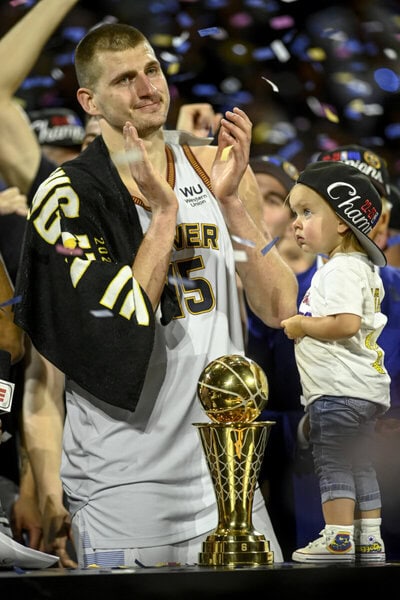
Nikola Jokić — the two-time NBA MVP and new NBA champion — is on top of the basketball world.
Upon entrance to the Association, he was not.
Infamously selected No. 41 overall in the 2014 NBA Draft amid an advertisement from Taco Bell, the Joker has surpassed all of his classmates in regard to hardware.
Better yet? He’s laughing straight to the bank.
While the shy Serbian is not big on off-court endorsements, he’s currently embarking on a grandiose supermax salary that will soon pay him over $61 million a season.
Next season, Nikola will surpass the top pick in his NBA Draft, Andrew Wiggins, in regard to career earnings. This matters much when considering the Joker’s 41st pick arrival, but even more, seeing as Maple Jordan made over four times as much in annual salary than that of Jokić in their debut seasons.
It’s a rare rise to the top in earnings and status that few second-round selections see. However, Nikola’s not entirely alone.
On the heels of Jokić’s title run and leading up to the 2023 NBA Draft, Boardroom breaks down some of the biggest earners — both on the court and off — that started their careers in the second round.
Gilbert Arenas (No. 31 Overall Pick, 2001 NBA Draft)

Rookie Salary: $332,817
Highest Annual Salary: $22,346,536
On-court Accolades: 3x NBA All-Star, 1x All-NBA Second Team, 2x All-NBA Third Team, Most Improved Player, Rookie vs. Sophmore Game MVP
Off-court Bags: $40,000,000 Adidas endorsement deal, NBA Live 08 cover star, Spalding endorsement deal
That Year’s No. 1 Pick/That Year’s Rookie of the Year: Kwame Brown/Pau Gasol
There’s a thin line between genius and insanity.
In basketball, no one has toed that line more miraculously than Gilbert Arenas.
“I’d go to the gym at night,” college teammate Channing Frye told Boardroom in March. “Every time I came back? Gilbert freaking Arenas was in there whether the lights were on or off. Shooting for hours, doing ball handling drills, defensive slides. He obsessed about those things.”
As an Arizona sophomore, Coach Lute Olsen urged Arenas to enter the NBA Draft, telling him he was already better than his previous point guard, Mike Bibby. This advice was valuable as Bibby had just led the Cats to their first national championship as a freshman before becoming the No. 2 overall pick in the 1998 NBA Draft.
Entering the 2001 NBA Draft, Gil was the leading scorer on a squad set to place four players in the league.
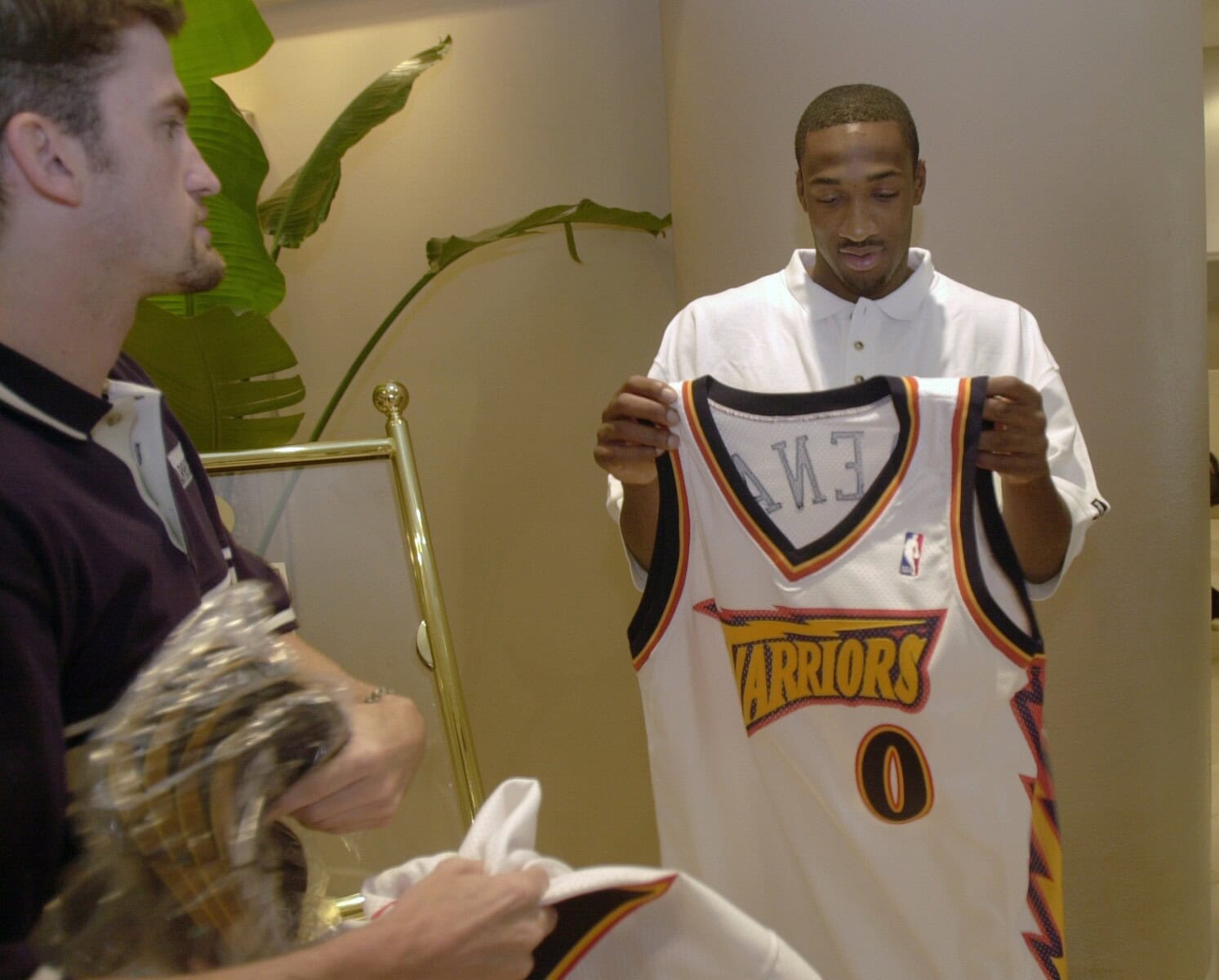
Following in the footsteps of Jason Terry, Michael Dickerson, and Bibby before him, Arenas assumed he was a surefire lottery land.
Quickly, he changed all that.
“Gilbert goes to the pre-draft camp and he’s doing the tests in Chuck Taylors more half-assed than you can ever imagine,” teammate Richard Jefferson recalled on the No Chill Podcast.
The consummate class clown with an intimate understanding of what he felt he didn’t need to prove, Arenas plummeted his draft stock by being truly No Chill. After all, it was the same quirky wiring that sparked his success in college.
“It’s pre-draft and they go, ‘What do you want to get out of this league?'” Jefferson says. “Gilbert goes, ‘I want to be a pimp.’ The guy goes, ‘Excuse me?’ Gil goes, ‘I want to be an international pimp.'”
“I was King Dickhead then,” Arenas recalled. “After I got drafted, I’m crying. I called and asked if I could go back to college. Why am I in the second round?”
Sliding to No. 31, Arenas lost money and gained fuel.
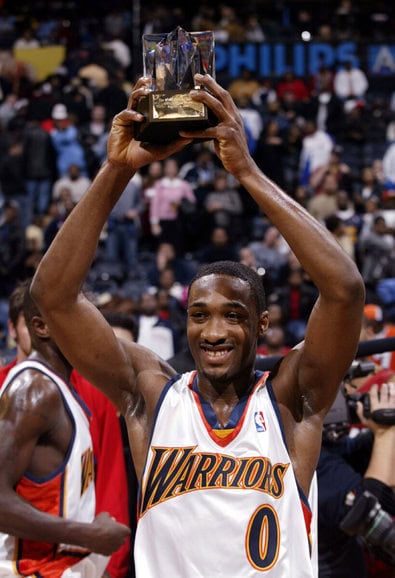
By being picked in the second round, he saw his Season 1 salary slip from an estimated $1.6 million had he gone top 10 to a non-guaranteed $332,817.
He started his professional life riding the bench and charging meals to teammate Larry Hughes’ hotel tab.
With little to no resources invested in Arenas, the Warriors had no incentive to play him. Having a heart-to-heart with GM Chris Mullin, Gilbert worked away while he rode the bench.
Midway into his rookie season, veteran point guard Mookie Blaylock left the team, allowing a window to arrive.
Gil ended the season as a starter, often scoring over 20 a night and even exploding for 32 points in his home of LA.
By Year 2, he was voted the NBA’s Most Improved Player. In an odd turn of events, all that pre-draft fooling allowed him to get rich quicker than his entire class.
Because he slipped to the second round, he’d only signed a two-year deal, making him an unrestricted free agent before any of that year’s lottery lands.
The summer after his second season, Arenas signed with the Washington Wizards for a blockbuster six-year, $60 million deal.
Entering his third NBA season, Agent 0 was earning over $8 million on the court. New teammate and 2001 No. 1 draft pick, Kwame Brown, was still on his rookie contract, making less than half of his point guard who went 30 picks after him.
Leaning into his second-round status, Arenas played the underdog card into a $40 million deal with Adidas — the same sum Jordan Brand was paying Carmelo Anthony and Nike was giving Kobe Bryant.
He was filling the figurative shoes of Michael Jordan as DC’s main attraction, becoming a fan favorite and All-Star starter.
In 2008, he’d continue to come up. That season, he’d cover NBA Live and re-up with the Wizards for $111 million, ironically igniting a bidding war between his current team and his old one. Only Joe Johnson, the No. 10 pick in the 2001 NBA Draft, would ever sign a bigger deal in that class.
An insane ascent for a basketball genius.
Manu Ginobili (No. 57 Overall Pick, 1999 NBA Draft)
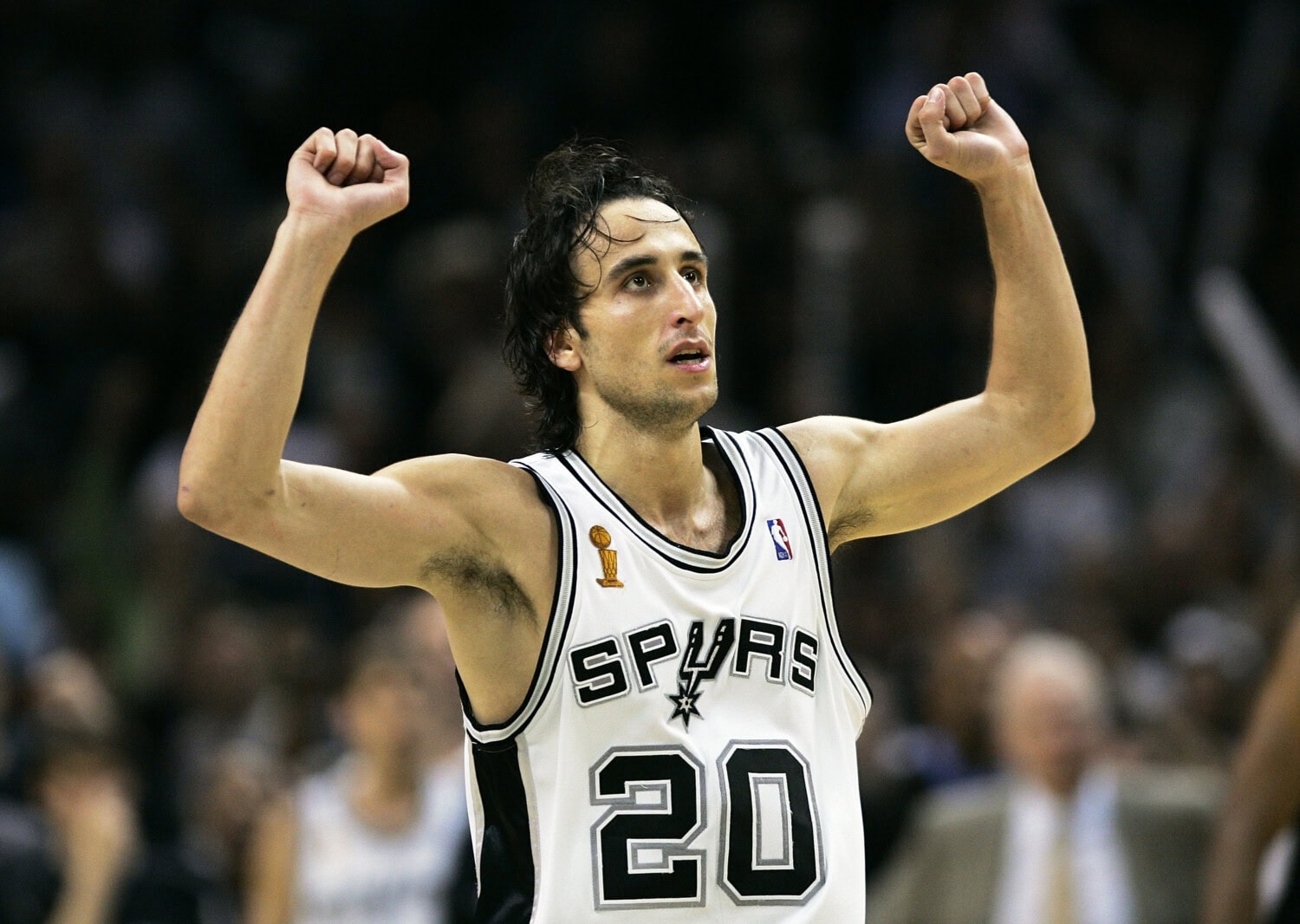
Rookie Salary: $1,325,000
Highest Annual Salary: $14,107,492
On-court Accolades: 4x NBA Champion, 2x NBA All-Star, 2x NBA Sixth Man of the Year, NBA All-Rookie Second Team
Off-court Bags: Nike endorsement deal, Gatorade endorsement deal, HEB grocery store commercial deal
That Year’s No. 1 Pick/That Year’s Rookie of the Year: Elton Brand/Elton Brand & Steve Francis
Emanuel David Ginóbili Maccari was selected No. 57 overall by the San Antonio Spurs in the 1999 NBA Draft.
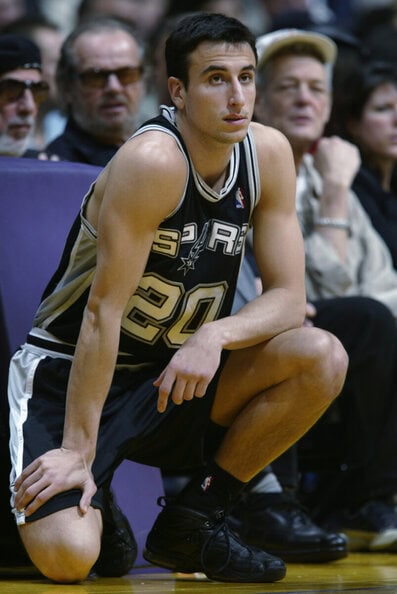
At that time, the Spurs were five days removed from winning their first-ever NBA title. Manu, an Argentine athlete then playing professional ball in Italy, was the second-to-last player picked.
Rather than sign the dotted line with the Texas team, Manu inked a two-year contract with Kinder Bologna.
In Bologna, Manu won Italian League MVP in each season. With that came leverage.
Starting his NBA career in 2002, Manu was able to earn over $1 million a season in San Antonio rather than the standard $340,000 a second-round pick would’ve earned annually at that time.
It was money well spent as Manu’s impact was instant. As a rookie in 2003, he won an NBA championship. By 2005, he was an NBA All-Star with another ring to his resume.
At his apex, Manu was making over $14 million a year on the court alone. He played 16 seasons in San Antonio, winning four NBA titles, and earning over $129 million as an NBA player.
Though Manu may not have had the endorsement deals international superstars score today, he’s forever revered in the city of San Antonio and his home of Argentina, still having the star power to pitch products or services as he so chooses.
Most importantly, he’s a Hall of Famer — something no one else in the 1999 NBA Draft class can claim.
Draymond Green (No. 35 Overall Pick, 2012 NBA Draft)

Rookie Salary: $850,000
Highest Annual Salary: $25,806,468
On-court Accolades: 4x NBA Champion, 4x NBA All-Star, 4x All-Defense First Team, 1x All-NBA Second Team, 1x All-NBA Third Team, 1x NBA Steals Leader
Off-court Bags: Nike endorsement deal, Converse endorsement deal, Turner Sports broadcasting deal, Beats by Dre commercial, YouTubeTV commercial, Subway commercial, Smile Direct commercial
That Year’s No. 1 Pick/That Year’s Rookie of the Year: Anthony Davis/Damian Lillard
Draymond Green was not supposed to be here in more ways than one.
As a Saginaw standout, he committed to the University of Kentucky, pulling his allegiance once Tubby Smith was let go. He landed at nearby Michigan State, assumed to redshirt his freshman season sitting behind five-star forward, Delvon Roe.
When all was said and done in East Lansing, injuries would lead Roe to a career in acting and Green to an unparalleled ascent. Each season under Tom Izzo, Green’s responsibilities would grow, going from a screen setter start to playing point forward as a senior.
However, an All-American college career meant little to scouts who saw a 6-6 tweener with a 33-inch vertical and no pro position.
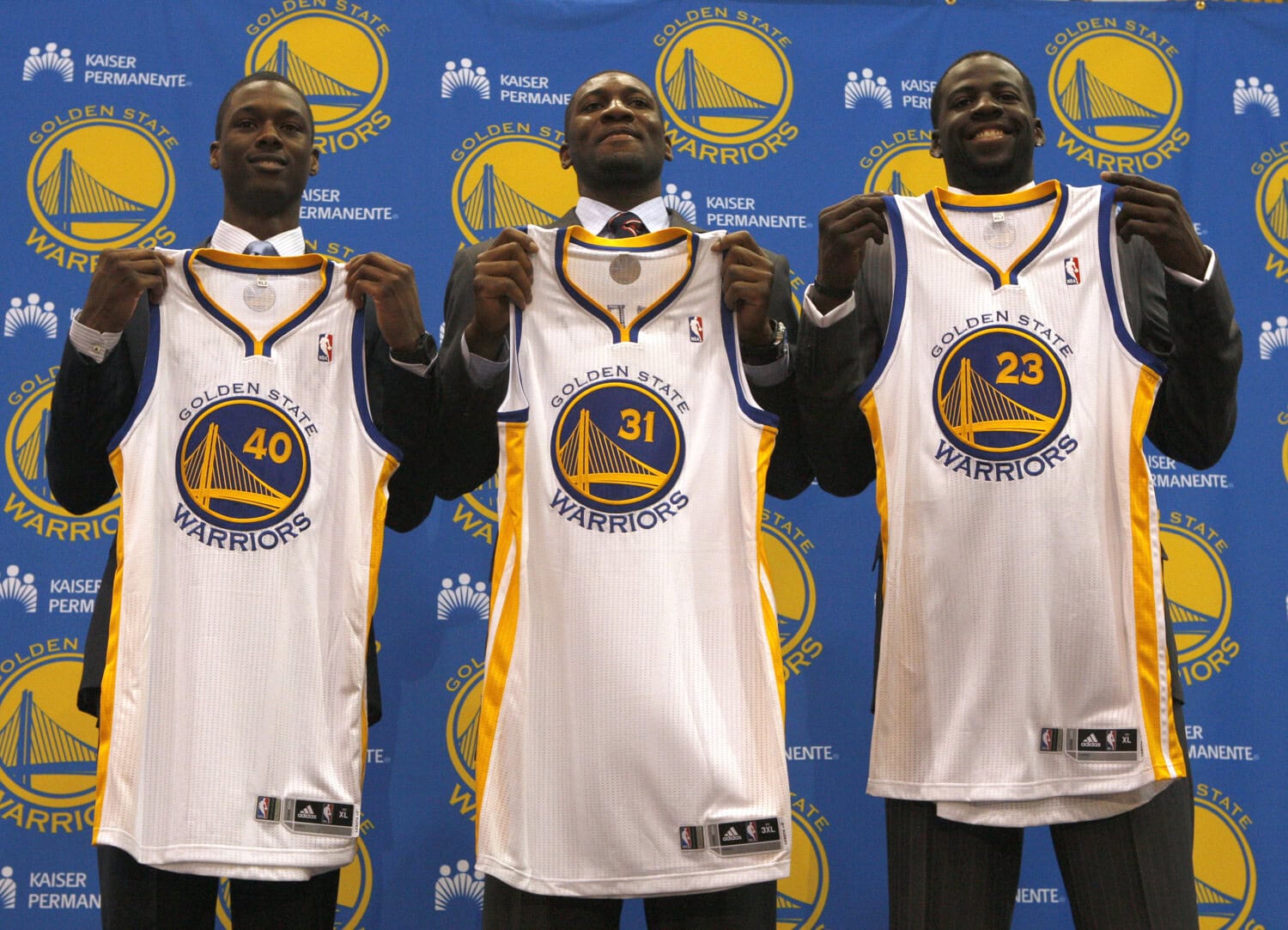
Fatefully, Green fell to the second round of the 2012 NBA Draft, landing in The Bay beside Steph Curry and the Golden State Warriors.
In Oakland, Green grew favor with Mark Jackson and soon Steve Kerr. Once again, injuries to a more magnified forward would allow Draymond a chance to play earlier than expected, quickly becoming the perfect contrast to a starting lineup led by mild-mannered shooters.
In Green, Golden State had a positionless player who could defend centers in the paint and lead the fast break like a point guard. Years into his ascent, an aggressive attitude and aptitude for team play would make him a key cog in a dynasty that’s since won four NBA titles.
Individually, Draymond Green has more championships than the entire 2012 NBA Draft lottery combined.
With winning comes more money.
From $850,000 as a rookie to an All-Star spot in 2016, Green’s annual salary has since skyrocketed, reaching over $25 million last season.
He’s been able to leverage his postseason screen time and polarizing personality to become a called-on endorser for footwear, headphones, and even retainers. More than that, he’s doubling down on his active audience by starting his media career amid his playing career, signed to Turner Sports while also hosting his own podcast.
With over $130 million in on-court earnings and more money coming by way of media, Draymond Green is not just somewhere no one expected him to be, he’s transcended two industries.
Dennis Rodman (No. 27 Overall Pick, 1986 NBA Draft)
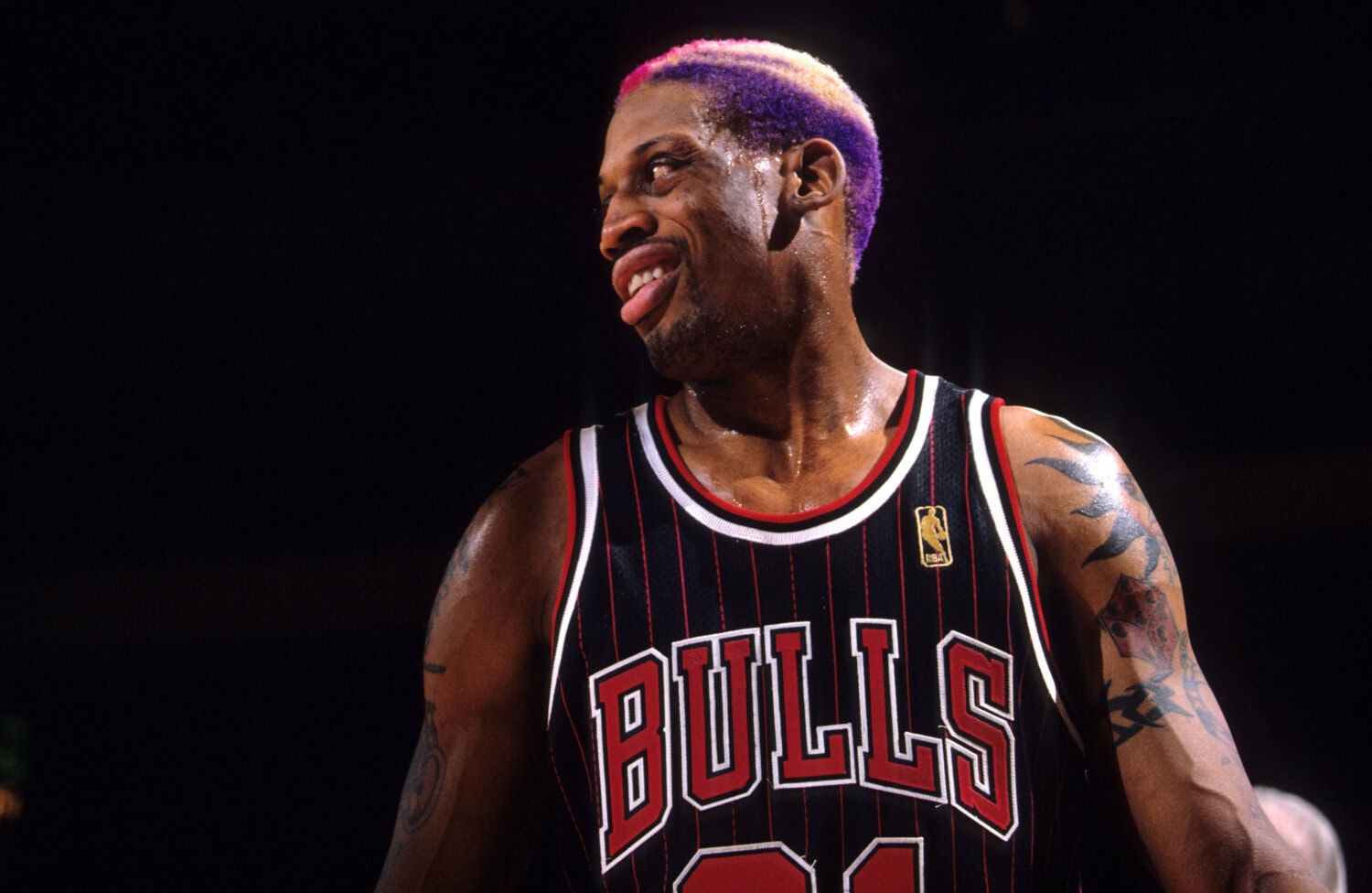
Rookie Salary: $75,000
Highest Annual Salary: $9,000,000
On-court Accolades: 5x NBA Champion, 7x Rebounding Champion, 2x Defensive Player of the Year, 7x All-Defense First Team, 2x NBA All-Star, 2x All-NBA Third Team, NBA 75th Anniversary Team
Off-court Bags: Starred in multiple movies, appeared in WCW Pay-Per-View specials, Book deal, Reebok endorsement deal, Nike endorsement deal, Converse endorsement deal, H&M commercial deal, McDonald’s commercial deal, Pizza Hut commercial deal, Kodak commercial deal, Carl’s Jr. commercial deal
That Year’s No. 1 Pick/That Year’s Rookie of the Year: Brad Daughtery/Chuck Person
Before Mookie Blaylock walked out of practice in Golden State and opened up minutes for Gilbert Arenas, the former first-round pick from Garland, Texas, was making an impact in New Jersey — and Seattle.
Inspired by the point guard’s play, a garage band in the Pacific Northwest chose Mookie Blaylock as the name for their grunge group.
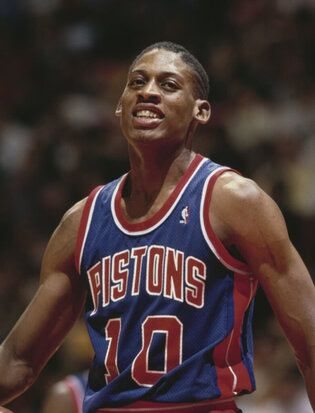
Once signed to Epic Records, they would change their monicker to Pearl Jam. In 1991, they’d release their debut album, Ten, an homage to Blaylock’s jersey number.
Out in Detroit, another athlete wearing No. 10 would adore Pearl Jam. His name was Dennis Rodman.
Drafted in the second round of the 1986 NBA Draft, the late bloomer became an NBA champion, All-Star, and Defensive Player of the Year in the Motor City.
Unfulfilled by his own swan song, Rodman contemplated taking his life outside of the team’s facility.
Listening to a song from Pearl Jam in the parking lot made him change his mind — and his image.
The awkward introvert was reborn as the ultimate bad boy — but not the blue-collar type that played for the Pistons. Rodman put on jerseys and dresses in San Antonio and Chicago, letting his freak flag fly while collecting championships and endorsements along the way.
From movie roles to book deals, the Worm was out-earning all his peers from the 1986 NBA Draft despite going in the second round and scoring single digits.
As a power forward for 1996-97’s historic Chicago Bulls team that went 72-10, Rodman made $9 million on the court in that season alone, averaging over 16 rebounds a night while collecting checks from Converse, who sold his signature shoe by day.
Off-court, he wrestled professionally for WCW, starred in action flicks, and hosted his own reality talk show on MTV.
Still sought after for public appearances and apparel licensing, the Hall of Fame forward has lived a life wilder than most, winning rings with Michael Jordan and sharing stages with Eddie Vedder.
Nikola Jokić (No. 41 Overall Pick, 2014 NBA Draft)
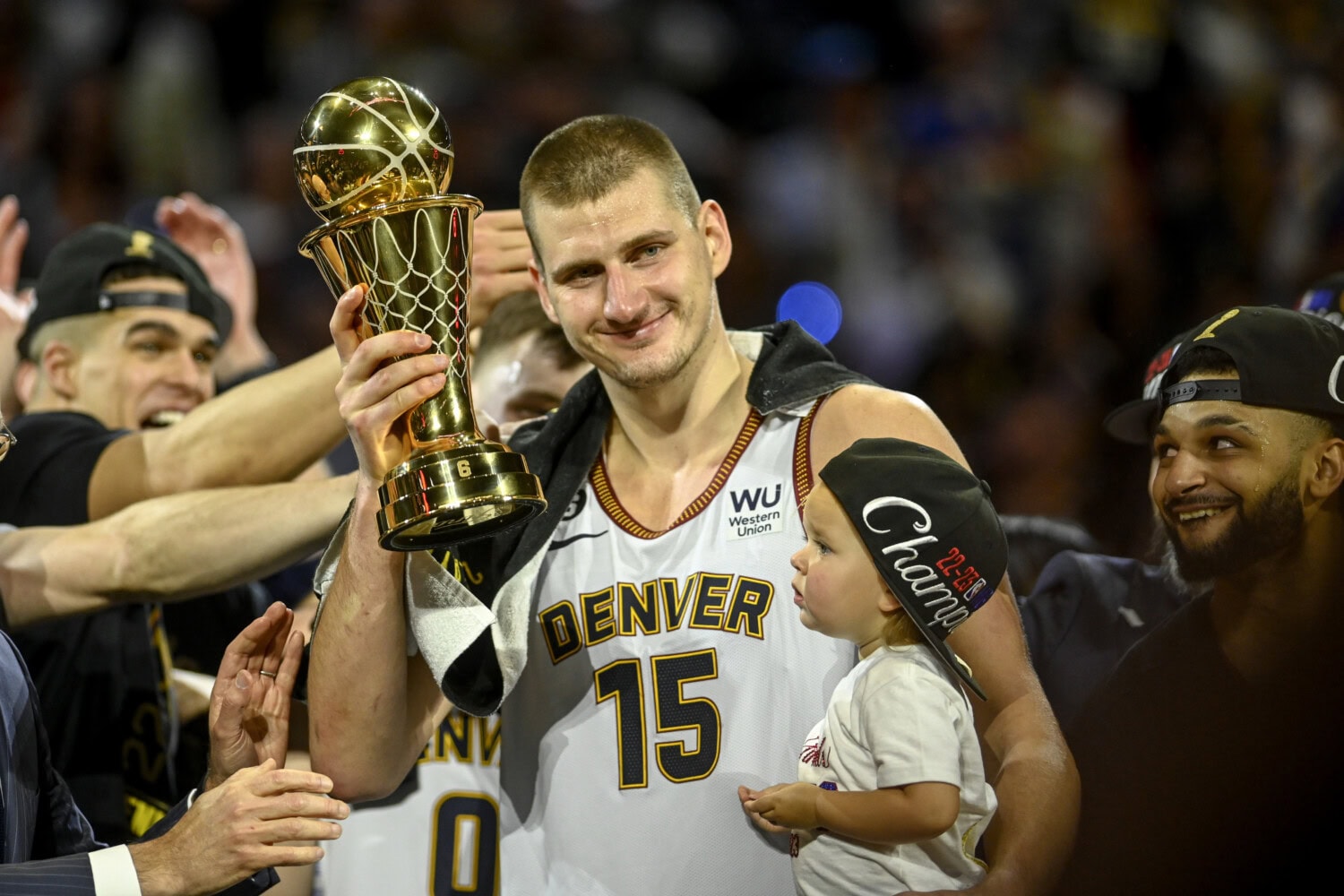
Rookie Salary: $1,300,000
Highest Annual Salary: $61,446,000*
On-court Accolades: NBA Champion, NBA Finals MVP, 2x NBA MVP, 5x NBA All-Star, 3x All-NBA First Team, 2x All-NBA Second Team, All-Rookie First Team
Off-Court Bags: Nike endorsement deal, Western Union commercial, Sportska Kladionica betting app
That Year’s No. 1 Pick/That Year’s Rookie of the Year: Andrew Wiggins
Headed into the 2014 NBA Draft, Nikola Jokić was more interested in a green card than the green room.
Playing professionally in Serbia since his teenage years, Jokić jumped overseas to America with next to no buzz around his name. The Serbian center was the only Denver draft pick the team retained, trading that year’s lottery selection for Jusuf Nurkić.

With a logjam at center and opportunities at home, Nikola stayed in Serbia for what would’ve been his rookie season, winning MVP of the Adriatic League in 2015.
He then came to Denver, coming off the bench at first. Making a modest $1.3 million, the Joker fought for time with Nurkić and J.J. Hickson — the latter of which the Nuggets paid four times that of Nikola.
By the last season of his rookie contract, Jokić was a certified starter. He’d open his fourth season making more than $25 million annually.
The upward wave continued as the Joker was voted an NBA All-Star in 2019, later winning his first of two NBA MVPs in 2021.
Now an NBA champion and Finals MVP backed by a supermax salary, Jokić’s annual earnings on the court will eclipse $61 million in 2028.
While the Joker is not as boisterous off the court as Rodman, Arenas, or Green, he’s already raising the ceiling for how great a second-round steal can be.
When looking at anyone’s list of the Top 25 players to ever dominate the NBA, the rankings may move but the names remain mostly the same.
What everyone in that select fraternity has in common is that they were all first-round picks.
If Jokić is to continue his current clip of All-Star selections, championships, and MVPs, he could solidify himself as the first and only second-round pick in that club.
As the game grows globally and opportunity becomes more democratized, it’s quite possible — though numbers suggest unlikely — that a diamond in the rough from this year’s 2023 NBA Draft could join this same list of second-round superstars.